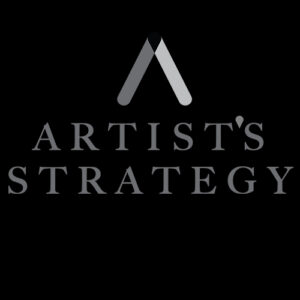
At the core of Artist’s Strategy are four beliefs that we ask every client to at last work towards accepting. Core Belief #1: An actor is an entrepreneur.
An entrepreneur is a person who develops an enterprise around an innovation. They, alone, manage the business and assume the risk for its success. At least at the start.
At Artist’s Strategy, we tell our actor clients that they are first and foremost entrepreneurs. Controversial, to say the least. A few cultural dinosaurs remain in our collective psyches, mainly the idea of the “starving artist” and the eventual “big break.” Most actors’ “business plans” consist of the following:
Is the above actually sustainable? Does it actually make sense? Isn’t this a wish as opposed to a plan?
Most actors decry “business” as a dirty word, something that has been imposed on them to consider when all they really want to do is climb the trees and frolic in the fields. But make no mistake, each actor is a solo enterprise working to make a living from their product (their talent) in a competitive, oversaturated market. Therefore, embracing your responsibility as a creative business owner is essential to gaining a competitive edge and therefore ensuring you can do this for the rest of your life.
Business is better.
Accountability: Sometimes the actor can bemoan the “unfairness” of the business, feeling that they are owed more than what they are currently getting. Whereas the entrepreneur understands that when they introduce something new to the marketplace it is not on the consumer to run to them, it is on them to show the consumer how the product can meet their needs. Steve Jobs didn’t blame the ignorant masses for “not getting it.” Luck was not a business principle for him. He understood it was his job to use his unique talents to create opportunities for himself; he certainly wasn’t waiting around for his agent to email him.
Value: As an entrepreneur, you have to identify what value your business provides to the marketplace, it is not enough to have a really good product and rest on your laurels. Yes that works for maybe 3% of people in this game, but chances are if you are reading this you don’t have Scott Rudin trying to break down your door. Understand that your talent is only a piece of the puzzle, you must identify other ways you can add value to industry folks’ lives.
Vision: To build a sustainable career as an artist it helps to be a visionary. When we view our career in a larger sense we clarify how it can benefit everyone, not just us. When we just “wanna do our thing,” we are asking for the equivalent of a hand out. Certainly WE should be excited about our talent and work, and wouldn’t it be nice to find our faithful little tribes who believed in our art unconditionally and who could lift our art up just because? However, in the meantime there are bills to pay and we must therefore get others excited about what our businesses can offer. This means operating from an inspiring image of the future.
Sanity: This is a little more froo-froo but hear me out. When we consider the points above we begin to compartmentalize our lives. There’s me as a person, there’s me as an artist and there’s me as a businessperson. They may inform each other, but they are separate hats. When we view our careers as transactional and not as a measure of our self-worth and validation, only then can we get out of our own way. More on this in the coming weeks.
This can be a hard pill to swallow for many. What is harder, however, is to leave your career in the hands of fate. This is already such a difficult business where odds are greatly stacked against each and every one of us (actors are a dime a dozen!) In the time of writing COVID-19 has decimated so many of our livelihoods as actors. When we accept our responsibility as small business owners we empower ourselves to figure out solutions and not live in problems.
The Actor and the Target Audience


Artist's Strategy offers artists the opportunity to strategize and create tactical next steps towards a successful, fulfilling career. Based on tested business principles, Artist's Strategy helps you design a tangible path towards a sustainable future. Incorporating and using the basic tenets of a healthy business, we will help you set a one, three or five-year-plan that will work for you and keep you on track to seeing real results. With Artist's Strategy, you will work alongside founder Joshua Morgan to identify the strengths and opportunities of your business and learn more about how to stabilize and grow. How long and how frequently you work with Artist's Strategy depends on your individual needs and resources. Contact us to discuss a plan that could work for you.
Read Full Profile© 2021 TheatreArtLife. All rights reserved.

Thank you so much for reading, but you have now reached your free article limit for this month.
Our contributors are currently writing more articles for you to enjoy.
To keep reading, all you have to do is become a subscriber and then you can read unlimited articles anytime.
Your investment will help us continue to ignite connections across the globe in live entertainment and build this community for industry professionals.